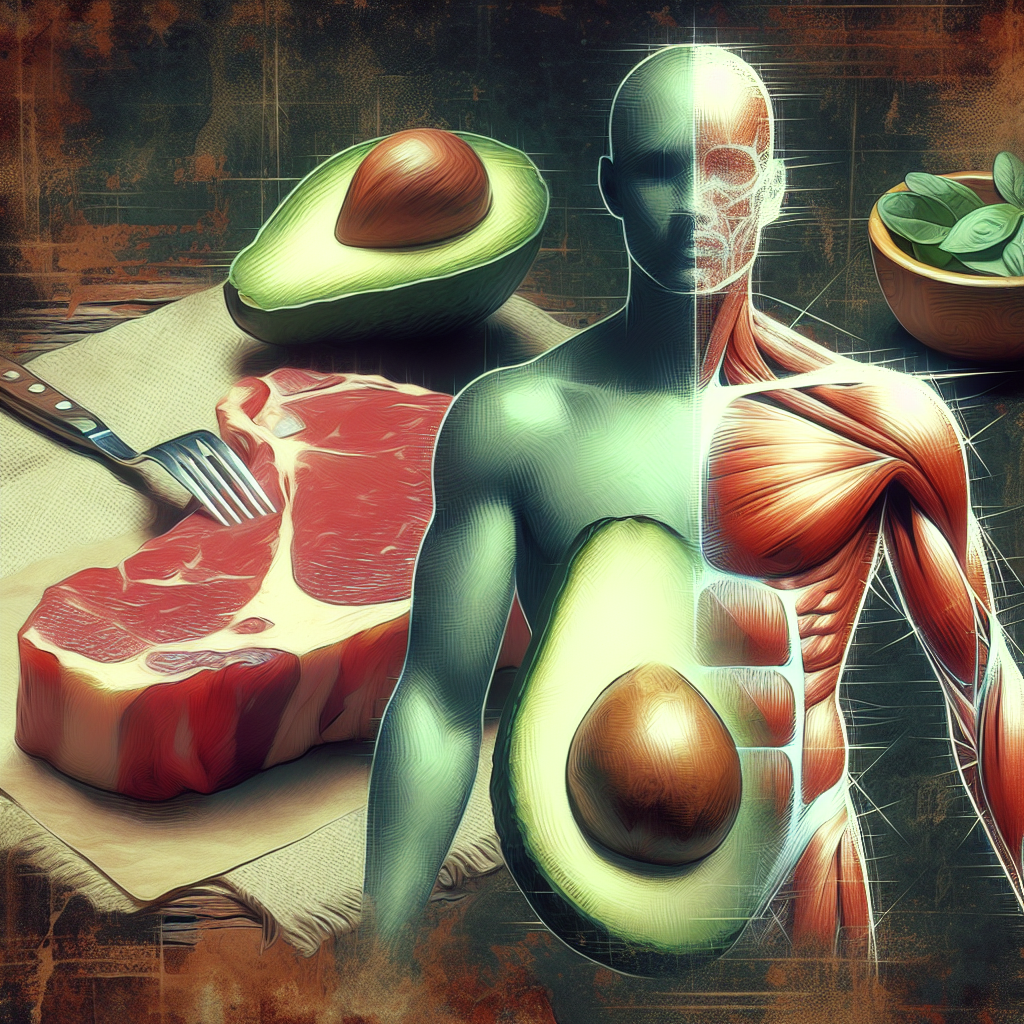The keto diet, known for its quick weight loss results, is admired by many as a revolutionary way to stay healthy and fit. However, there’s not much said about the rare side effects that prolonged keto cravings can cause. In this insightful article, you’ll encounter information about the seldom acknowledged repercussions of this trendy diet. Knowledge is power, and by knowing these rare side effects, you are equipped to make an informed decision about your health journey. Brace yourself as you discover the hidden side of the Keto diet journey.
Understanding Ketosis and the Keto Diet
In the world of health and wellness, you’ve probably heard about the ketogenic diet, or ‘keto’ for short. With so much attention, you might wonder what’s exactly involved in this diet and what impacts it can possibly have on your health.
The Basics of the Keto Diet
The keto diet is a low-carb, high-fat diet that’s designed to switch your body to use fat instead of glucose as its primary source of energy. It does this through a process called ketosis, where your body transforms fatty acids in your diet and the fat stores in your body into ketones, a type of molecule your body can use for fuel.
What is Ketosis?
Ketosis is a natural metabolic state in which your body, due to lack of enough carbohydrates for your cells to burn for energy, is forced to burn fat. In doing so, it produces ketone bodies that can be broken down and used for fuel. When you’re in ketosis, you’re powered mainly by fat, not carbohydrates.
Transitioning into Ketosis
Switching to a keto diet can be a bit of a shock to the system. You might feel sluggish and foggy-headed as your body transitions to burning fat for energy instead of glucose. This period, commonly known as the ‘keto flu’, typically lasts a few days to a week. Once your body fully adjusts to this new way of getting energy, you may start noticing positive changes.
What are the Common Side Effects of the Keto Diet?
While many individuals have experienced benefits from keto, it’s fair to understand that there might also be some potential side effects.
The ‘Keto Flu’
When first starting out on the keto diet, you may experience a group of symptoms similar to those of flu. These might include headaches, brain fog, irritability, nausea, and fatigue. These symptoms are generally temporary, clearing up as your body adapts to the new diet.
Short Term Power and Performance Reduction
There can be an initial drop in physical performance when you switch to the keto diet. Your body is so used to using glucose for energy, and suddenly it has to use fat, which can temporarily impact your stamina and mental focus. This usually normalizes once your body adjusts to using fats for energy.
Changes in Bowel Habits
Reducing your intake of carbohydrates might impact your digestive system, especially if you’re not consuming enough of fiber from non-carb sources. This could lead to constipation or irregular bowel movements. It’s important to ensure you’re still consuming adequate fibers even when on a keto diet.
Decreased Tolerance to Alcohol
Due to the changes in metabolism while on the keto diet, you may find that you have a lower tolerance to alcohol. This might mean that you start feeling the effects of alcohol sooner and stronger than before.
Keto Breath and Keto Body Odor
Some people experience changes in their breath and body odor while on the keto diet. This is due to the production and release of ketones, specifically acetone, which can give your breath a fruity or metallic taste and smell.

Long-term Keto Dieting: What to Expect
Beyond the initial transition phase, there are several things you might notice if you stick with the keto diet long-term.
Weight Loss and Maintenance
Many individuals experience significant weight loss on the keto diet. Once your body becomes efficient at burning fats, you might find it easier to control your weight and keep off excess pounds.
Increased Energy Levels
Once your body has adjusted to using ketones for fuel, you might notice a significant increase in your energy levels. This is because fats are a more consistent energy source than carbohydrates, and avoid the energy crashes associated with sugar intake.
Lower Hunger Levels
A high-fat diet like keto can have a significant effect on your hunger levels. Fat is more filling than carbohydrates, which can lead to a natural reduction in your calorie intake.
Rare Side Effects Associated with Prolonged Keto Diets
Despite the various benefits, there are also some potential risks of long-term keto dieting that you should be aware of.
Long term Nutritional Deficiencies
A restrictive diet like keto can potentially lead to nutrient deficiencies if not carefully planned, particularly in nutrients found in foods that are off-limits on a keto diet.
Development of Kidney Stones
Research has indicated that a prolonged keto diet can increase the risk of developing kidney stones. This is because the diet can cause your urine to become more acidic, which can result in the formation of kidney stones.
Liver Problems
The fat concentration of the keto diet can put excess strain on your liver, leading to potential problems. This can be an issue especially if you already have underlying liver conditions.

Addressing Nutrient Deficiencies
Long-term keto dieting can incur some risks, but with attentive care, you can maintain your health while remaining on the diet.
Risks of Nutritional Deficiencies
If your diet becomes too restrictive and fails to include a variety of foods, you might end up with some nutrient deficiencies. These might range from minor ones like Vitamin A and K, to electrolyte imbalances due to excessive water loss in the initial stages of diet.
Importance of a Well-rounded Diet
Keeping your diet varied and balanced is crucial, even on a restrictive regimen like keto. Incorporate a wide array of keto-friendly foods such as leafy greens, fish, nuts, seeds, and oils to ensure your macro and micro nutrient needs are being met.
Supplementing on a Keto Diet
Supplementing can be an effective way to ensure you’re getting all the nutrients you need on a keto diet. Essential supplements might include electrolytes, B-vitamins, Omega-3 fatty acids, and fiber.
Prolonged Keto and Kidney Stones
If you’re wary of developing kidney stones while on a prolonged keto diet, understanding how they occur can help prevent them.
Understanding Kidney Stones
Kidney stones are hard deposits made of minerals and salts that form inside your kidneys. They can cause extreme pain and discomfort and may require medical attention.
Why Ketogenic Diets Can Contribute to Stone Formation
The high animal protein content in a typical keto diet could lead to reduced urine pH levels, which can make conditions favorable for the formation of uric acid and calcium oxalate stones. Moreover, if your hydration is not adequate, higher concentration of these materials in urine promotes stone formation.
Preventing Stones on a Keto Diet
Staying well-hydrated and moderating your intake of high animal protein and including some plant-based proteins, while still keeping within your ketosis macro limits, can help reduce your risks.

Impact on Liver Health
The keto diet’s high-lipid requirement can pose potential risks to your liver health.
Vital Role of the Liver in Ketosis
Your liver plays a central role in ketosis, especially in the production and export of ketones to be used by other organs as energy.
Potential Keto-Related Liver Problems
The ketogenic diet can put a heavy burden on your liver. The high fat intake can lead to fat buildup, inflammation, and even potential liver damage in susceptible individuals.
Preventing Liver Damage While in Ketosis
It’s important to remember that not all fats are created equal. Focusing on healthy fats, making sure you’re staying hydrated, and getting regular liver function tests can help you monitor and maintain your liver health.
Cardiovascular Considerations
Another concern for many individuals considering Keto diet is the impact on heart health, given the high-fat nature of the diet.
Understanding Lipid Levels
One of the key markers that doctors use to assess cardiovascular health is the lipid profile. It accounts for the levels of ‘good’ HDL cholesterol, ‘bad’ LDL cholesterol, total cholesterol, and triglycerides.
Keto Diet’s Impact on Cholesterol
Many individuals fear that the high-fat intake of the keto diet will cause high cholesterol levels. However, the fats in keto are mostly ‘healthy fats’, which can actually increase the ‘good’ cholesterol and reduce the ‘bad’ varieties.
Possible Heart Health Risks
However, if you’re getting your fats mainly from unhealthy sources, like saturated and trans-fats, you might face potential risk of cardiovascular issues. Monitor your lipid profile and ensure the inclusion of heart-healthy fats like monounsaturated and polyunsaturated fats.

Implications for Diabetes
While some individuals have found benefits from the keto diet for their type 2 diabetes, there are specifics to be aware of.
Impact of Keto on Blood Sugar Levels
A ketogenic diet, due to its carb-limiting nature, could help in stabilizing blood sugar levels and improving insulin sensitivity.
Possible Risks for Diabetic Individuals
If you have diabetes, you should be careful as keto diet can cause rapid declines in blood sugar levels. This could potentially lead to hypoglycemia if your medications aren’t adjusted accordingly.
Monitoring Blood Sugar on a Keto Diet
Regular blood glucose monitoring and close communication with your healthcare provider is vital if you’re a diabetic individual intending to start on a keto diet.
Ways to Mitigate the Risks of Prolonged Keto Diet
Long-term keto dieting can involve potential risks, but with certain measures and interventions, you can alleviate these risks.
Incorporating Regular Check-ups
Regular health checkups can help monitor your kidney and liver health, your cardiovascular health, and help regulate any potential deficiencies.
Maintaining Hydration
Ensuring you’re adequately hydrated is essential, especially considering the loss of fluids and electrolytes in the initial phase of the diet.
Planning a Balanced Keto-friendly Diet
Including a variety of keto-friendly foods and appropriate supplements in your diet can help in maintaining an overall nutritional balance.
Remember, every individual’s reaction to a diet can be different. It’s always wise to listen to your body and consult healthcare professionals if you’re considering embarking on a diet like keto.

